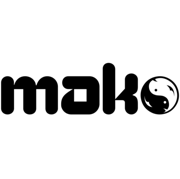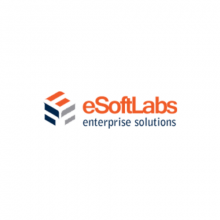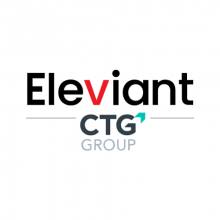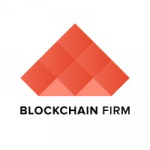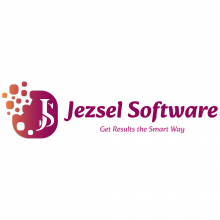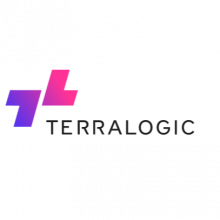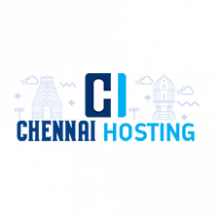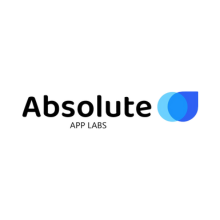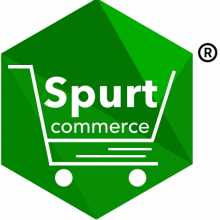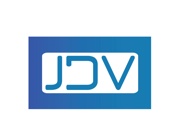Explore Top Angular Development Companies in Chennai
An IT company specialising in legacy app modernization. 30+ years of experience in the industry and completed over 2000 modernization projects.
Adscraze: Your Vision, Our Strategy
Services:
Elevate and Scale your Business through Digital Transformation
Login360 is a leading software training institute in Chennai, and we provide various software courses with IT training experts.
10decoders is a custom software development company helping clients to grow businesses through IT Consulting, Architecture Workshops, and Low Coding.
Get all issues fixed and have bug-free application
Delivering enterprise blockchain services and solutions globally since 2017. We work towards creating a decentralized world.
Services:
Web Application, Mobile Application Development Company
Smiqgen have an innovative and expert team to be actively involved in delivering of high end services in Scientific Communication, Digital Technology
Services:
BIGZIEL Technologies is a trustworthy software development company and phenomenal digital transformation.
Appysa Technologies is a professional web and mobile app development company specializing in clone script and clone app development.
Chennai's #1 Domain Registration & Web hosting company offers a domain registration, domain hosting. Register domain names at cheapest prices.
Curating World Class Digital Experiences.
Spurtcommerce, B2B and B2C headless open source ecommerce solutions, built on the latest technologies of Node.js, Angular.
Filter Angular Development Companies in Cities near Chennai
Dive deeper and find the company you need close to you or, from a specific city you prefer. Some of the best companies come from smaller places
Find more Angular Development companies around the world
TechBehemoths is the world's most advanced and user-friendly platform to match IT Companies with real clients without hustle.
The ICT Industry in Chennai: Data & Research
Chennai is the second-largest software exporter in India, straight after Bengaluru, and also, is the home to many global tech giants, such as Verizon, eBay, PayPal. Why did such big companies decide to open offices in Chennai?! Simply because is the biggest startup incubator in India, and probably the place where most of the local professionals are attracted to.
Of course, Chennai is far behind Mumbai; New Delhi, and Bengaluru when it comes to profit, but this is because most of the tech and IT businesses start in Chennai, but continue to grow and develop in Bengaluru, Mumbai, and other metropolitan cities.
Chennai is also a place where you can find plenty of SaaS companies - around 600, which engage in the system around 15,000 workers and has a yearly revenue of $1 billion USD, out of which $500 million were from funding only.
The transformation of Chennai is more surprising since it was for a very long time a manufacturing center, also called by many the Detroit of India. And the effort for the digital transformation of Chennai only was huge, but it was worth it.
According to data from Venture Intelligence, Chennai has become India’s fourth most active startup ecosystem, ahead of Hyderabad and Pune, and above all the city area is cheaper than other startup and tech hubs from India. But the wages are also lower - according to Glassdoor, the average yearly wage of a developer in Chennai is $7000+ USD, several times lower than Bengaluru for example.
In case you are interested in working with IT companies based in Chennai, it’s good to know that you can choose out of 4000+ professional teams the one that suits you more, and here on TechBehemoths you can find the best of them
What is Angular and what are its benefits for your projects?
Angular (formerly AngularJS) is a popular open-source web application framework maintained by Google and a community of developers. It's used for building dynamic, single-page web applications (SPAs) and web-based applications in general. Angular provides a structured and organized way to create complex web applications by extending HTML with additional features and enabling the development of interactive, responsive, and maintainable front-end web interfaces. Here are some key aspects and concepts of Angular:
-
Component-Based Architecture
-
Templates
-
Directives
-
Dependency Injection
-
Services
-
Routing
-
Observable and RxJS
-
Modules
-
Testing
-
Cross-Platform
Angular's structured approach, strong tooling, and vibrant ecosystem of libraries and extensions make it a powerful framework for building modern web applications. It is particularly well-suited for large and complex projects where maintainability and scalability are crucial.
Companies may choose Angular over other front-end frameworks for their projects for a variety of reasons, depending on their specific needs and priorities.
-
Google Backing: Angular is developed and maintained by Google. This association often gives companies confidence in its long-term support, stability, and continuous improvement. Google's involvement is seen as a sign of reliability and commitment to the framework.
-
Mature and Established: Angular has been around for a while and has a strong track record of being used successfully in large-scale enterprise projects. It has a well-defined architecture and best practices, which can be beneficial for maintaining and scaling applications over time.
-
TypeScript Support: Angular is built with TypeScript, a statically-typed superset of JavaScript. TypeScript provides better tooling, code maintainability, and catches errors at compile time, which can reduce bugs and enhance code quality, making it attractive to companies that prioritize robust code.
-
Full-Featured Framework: Angular provides a comprehensive set of tools, libraries, and features out of the box, including routing, form handling, HTTP client, and more. This can save development time and effort compared to integrating multiple third-party libraries in other frameworks.
-
Two-Way Data Binding: Angular offers powerful two-way data binding, which allows for automatic synchronization between the data model and the view. This feature can make it easier to develop interactive and responsive user interfaces.
-
Large and Active Community: Angular has a large and active community of developers and a wealth of resources, including documentation, tutorials, and third-party libraries. This can be beneficial for finding solutions to common problems and getting support when needed.
-
Enterprise-Ready: Angular provides features like dependency injection, modularity through modules, and a strong emphasis on testability. These characteristics are well-suited for building robust and maintainable enterprise-level applications.
-
Strict Coding Standards: Angular enforces a set of coding standards and best practices, which can lead to more consistent and readable code. This can be important for companies with multiple developers working on the same codebase.
-
Cross-Platform Development: Angular can be used for building both web and mobile applications. Companies looking to develop applications for multiple platforms may choose Angular for its ability to share code between web and mobile apps using technologies like NativeScript or Ionic.
-
Integration with Backend Technologies: Angular can easily integrate with various backend technologies and APIs. This makes it suitable for projects where the front end needs to communicate with different types of server-side applications.
-
Security Features: Angular provides built-in security mechanisms to help prevent common web vulnerabilities like Cross-Site Scripting (XSS) and Cross-Site Request Forgery (CSRF). This can be crucial for projects with high security requirements.
-
Ecosystem and Tooling: Angular has a rich ecosystem of tools, extensions, and IDE support, including Angular CLI for project setup and management. This can streamline development workflows and improve productivity.
Ultimately, the choice of Angular or any other framework depends on the specific project requirements, the development team's expertise, and the company's long-term goals. Companies evaluate various factors to determine which framework aligns best with their needs, resources, and priorities.
